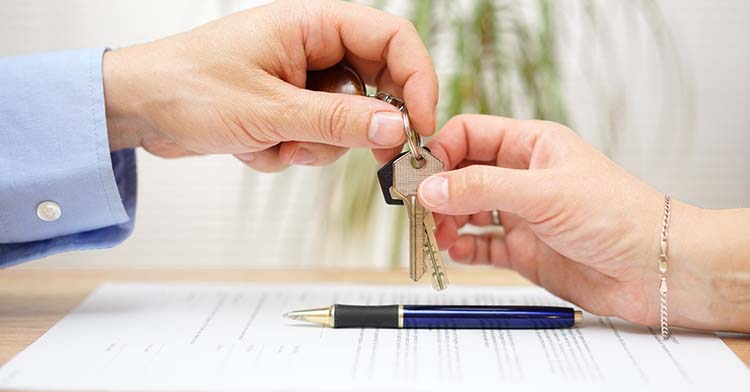
How does one start a 1031 exchange? And once it is started, what should an investor expect throughout the process?
There are several parties and many documents involved with a 1031 exchange. We’ll look at what’s needed to get started and what to expect throughout the process.
Starting a 1031 Exchange
A 1031 exchange starts with planning. Going to a realtor after you have closed on the relinquished property is too late. The exchange must be started before settlement completes.
The workflow of a 1031 exchange is to sell a property and then buy a property with an exchange facilitator in the middle to facilitate the process. The investor signs over rights and ownership of the relinquished property to the facilitator before settlement completes. Specifically, the purchase sale agreement is signed over to the realtor. The property deed is transitioned to the buyer of the relinquished property.
Negotiating the relinquished property can be done before meeting with the facilitator. The seller and buyer can discuss what the transaction will look like, including pricing and any terms.
To be completely tax-deferred, the replacement property should be of the same or higher value in equity compared to the relinquished property, which is one of the basic components of like-kind property.
The facilitator will want the exchanger's name (i.e., seller of relinquished property) and contact information. They will also need to know who is handling the closing, which might be a realtor or an attorney. The escrow officer’s information will be needed as well.
Once the facilitator has the necessary information, they will create an exchange agreement. This agreement will go to both the seller and the buyer. During the exchange, the facilitator is the seller of the relinquished property and buyer of the replacement property. Closer to the end of the exchange process, the properties transition from the facilitator to the final buyer and seller.
Once the closing occurs, the facilitator will send the exchanger information for their 45th and 180th days. All of the identification rules should be included as well. A form should be included for the exchanger to identify up to three properties. The facilitator must receive this form no later than the 45th day.
During the 1031 Exchange Process
As the buyer, the exchanger will likely sign documents throughout the 1031 exchange process. Documents will need to be signed as transactions occur.
Once the replacement property transaction has been completed, the deed will go from the seller to the exchanger (i.e., seller of relinquished property). Once closings on both properties have been completed, the facilitator should send out more documents that show the properties involved in the exchange and a full accounting of funds. The exchanger can use this information for tax purposes.
All of these transactions (mainly closing on the two properties) must be completed within the 180-day window.
Investors shouldn’t rely on the involved process to keep the 1031 exchange process moving forward. In the end, it’s the investor’s responsibility to complete the exchange on time. This means staying on top of deadlines (i.e., 45-day and 180-day deadlines) and ensuring everyone is doing their part.
A good qualified intermediary and 1031 exchange facilitator are critical to ensuring the process goes smoothly. This is where spending time researching these entities can pay off and ultimately result in a successful 1031 exchange.
This material is for general information and educational purposes only. Information is based on data gathered from what we believe are reliable sources. It is not guaranteed as to accuracy, does not purport to be complete and is not intended to be used as a primary basis for investment decisions. It should also not be construed as advice meeting the particular investment needs of any investor.
Realized does not provide tax or legal advice. This material is not a substitute for seeking the advice of a qualified professional for your individual situation.
Costs associated with a 1031 transaction may impact investor's returns and may outweigh the tax benefits. An unfavorable tax ruling may cancel deferral of capital gains and result in immediate tax liabilities.



